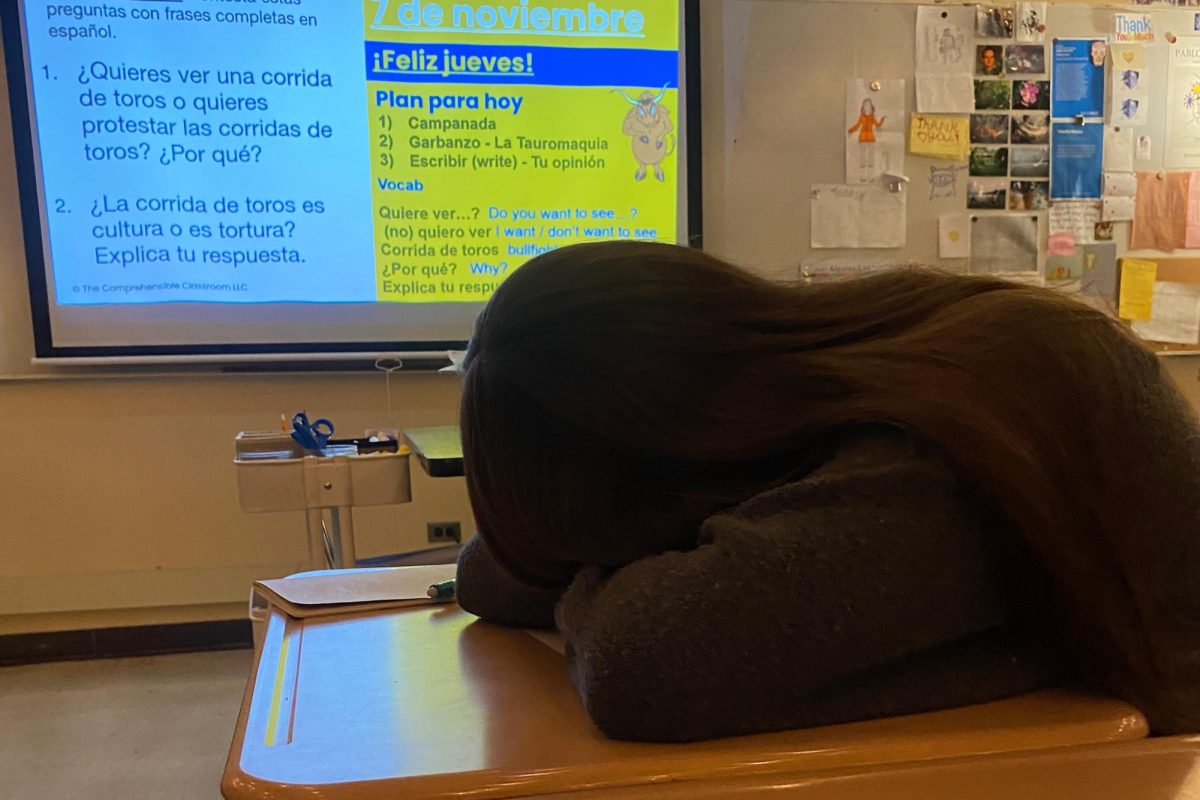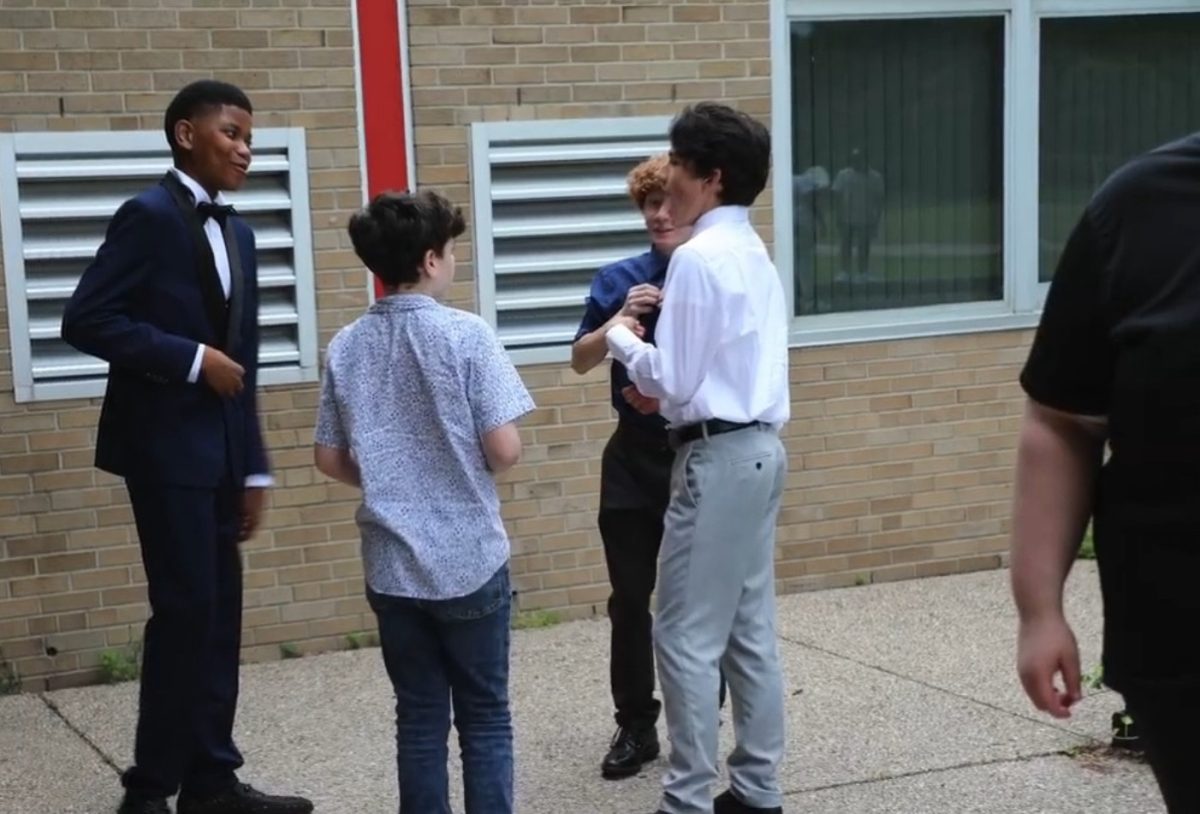The lights are shut off, all of your classmates are silent, and the teacher is rambling on about something you stopped listening to a while ago. You just can’t help it, you put your head down for just a second to rest your eyes. Next thing you know you’ve fallen asleep, and now class is almost over.
This has become a common pattern for students. Whether out of boredom or sheer exhaustion, more and more students are choosing to rest their heads instead of listening during instructional time.
For some students, sleeping in class has increasingly become more of a habit than a choice, one that is particularly difficult to break.
“I feel like it has affected my education,” freshman Jacob Nwokenta said. “I feel like sometimes I’m not able to get all the information the teacher wants me to, but the more I’m sleeping in class, the more I’m getting used to it.”
According to a study conducted by Dr. Nilon Vyas at SleepFoundation, excessive sleepiness can cause poor attention span, reduced adaptability, and impaired memory. These factors can create a cycle of apathy in classes that may feel impossible to break.
The rise in tiredness during class and its effects have led both students and teachers to wonder if school should start later, as this may allow for increased sleep time each night. Beyond that, many have also wondered what the school should be doing to help support students who have become prone to sleeping in class.
Nwokenta explains his opinion on the topic, expressing that later start times would be beneficial to him.
“I feel like school starting later would definitely help me focus in class. I’d be able to get more sleep, and then I wouldn’t want to put my head down during class,” Nwokenta said.
He goes on to explain that usually, he faces no punishment for sleeping during class, which can make it difficult to find motivation not to sleep.
As stated in “Schools shift as evidence mounts that later start times improve teens’ learning and well-being,” written by psychologist Kirsten Wher of the American Psychological Association, later school times could possibly correlate with more sleep, resulting in higher overall academic performance.
Adequate sleep levels have proven to have a direct influence on students’ focus, vigor, and willingness to learn during class. These factors would benefit not only students but teachers as well, promoting a smoother classroom experience in their day-to-day teaching. However, some teachers believe that starting school later would not result in a drop of students falling asleep in class.
“I think most students are just staying up late, doing other things, and then coming to school sleepy,” said science teacher Zachary Schmidtke. “I don’t think school starting later would change that.”
Schmidtke goes on to say he believes it is not the school’s responsibility to prevent students from sleeping in class, but instead, it is their responsibility to manage on their own. He does not discipline students for sleeping during class if there is a moment of downtime.
Schmidtke also states that while his sleep schedule may shift if school started later, he would not be sleeping any longer than usual.
While some may believe that the fault falls into the school system’s hands, others feel that healthy sleep cycles are the responsibility of the student.
School beginning later may not appeal or line up with every student’s schedules and activities, despite others agreeing later start times would be beneficial to their class performance. Sleeping in class can have harmful impacts on students and their education. Beyond that, sleeping in class is a cycle that can become extremely difficult to break.










NiaAsia C • Feb 7, 2025 at 11:51 am
The though of school starting later might not be so bad, but also I feel this would take so long to put in progress.
Phoenix R • Feb 7, 2025 at 9:17 am
this made me think about the possibility of school starting later, and I would appreciate that.
Savannah • Feb 6, 2025 at 1:54 pm
This is a great article! It shows the impact of sleep.